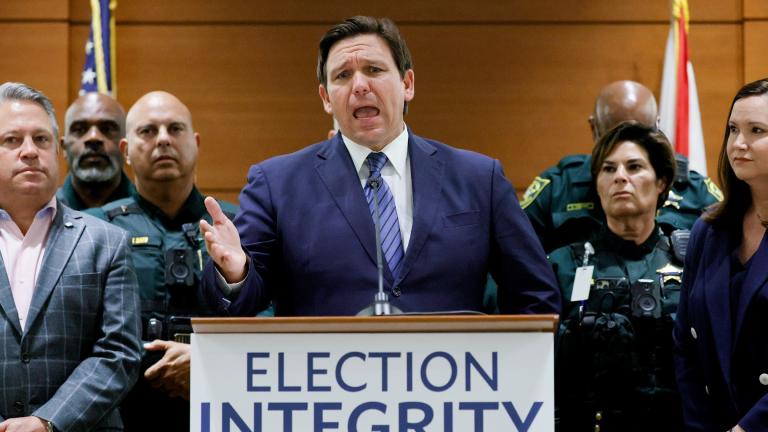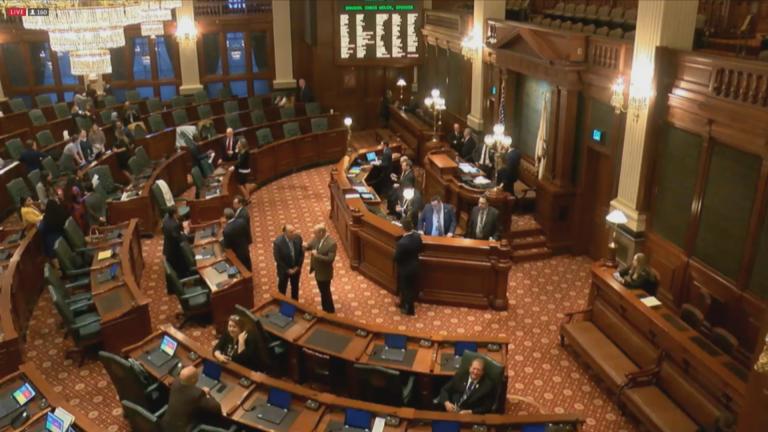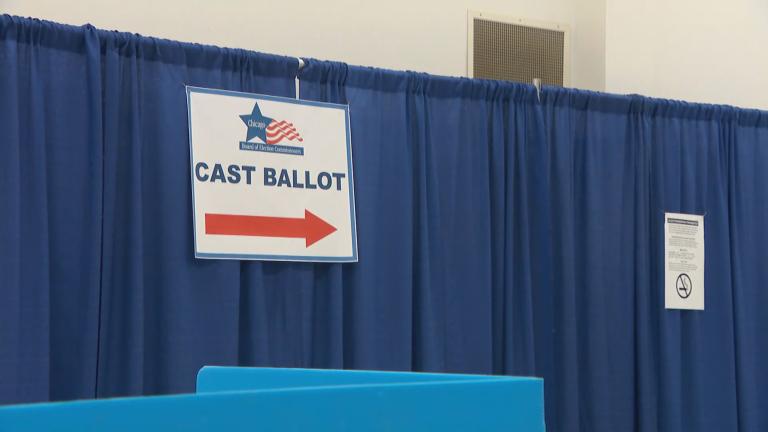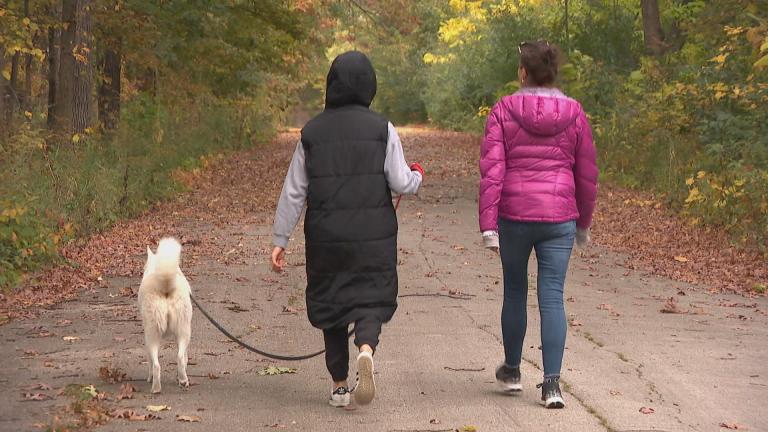Illinois’ new law overhauling the criminal justice system has taken center stage in this year’s elections.
Critics are comparing it to a horror film in which criminals roam free, and proponents defend it for making overdue changes that confront structural racism and ensure individuals aren’t left to rot behind bars just because they’re poor.
The law, known as the SAFE-T Act, will eliminate cash bail come January.
But it’s likely the law will see an overhaul of its own — or at least, tweaks — before then.
Legislators approved the SAFE-T Act at the urging of the Black Caucus in January 2021 as part of Black legislators’ response to the murder of George Floyd.
“This is about trying to build a process that allows people to have faith in the system, and building a process where justice is more fair,” said state Rep. Jehan Gordon-Booth, D-Peoria, a Black Caucus member.
Her own stepson was murdered in 2014.
“Crime is something that has been very prevalent in a lot of communities in Illinois. I myself am a crime victim. My family has seen the absolute worst of every side of this issue,” she said. “For one to think that anybody would be a proponent of crime is silly and it’s quite preposterous.”
Several state’s attorneys have sued, seeking for the courts to strike the law completely. The latest lawsuit was filed Tuesday by Brown County State’s Attorney Michael Hill and Brown County Sheriff Justin Oliver.
Hill declined to comment.
The complaint takes issue with how the law was passed, as well as what it does. It also alleges the SAFE-T Act is too vague, creating problems for the state’s attorneys and sheriffs responsible for enforcing the aspects of it that deal with pretrial release and the elimination of cash bail.
“Despite meeting monthly since July 2021, the Pretrial Practices Oversight Board has been unable to articulate uniform guidelines to comply with this Act,” the complaint reads. “Public Act 101-652 imposes new procedural requirements on peace officers, state’s attorneys and judges without articulating how these requirements may be satisfied.”
Gordon-Booth is also co-chair of the Illinois Crime Reduction Task Force, which met for the first time Tuesday, and said legislators shouldn’t shy from conversations about the SAFE-T Act, whether they’re politically motivated with the November election a month away or whether they’re genuine.
She said she’s in regular conversations about potential changes, including a meeting Tuesday with an unspecified state’s attorney.
“There’s a lot of agreement on changes that need to be made. Conversations that are happening are ones that I would deem as being incredibly productive and I think that have the ability to get us to a really good place in a couple of weeks. I’m confident of that,” Gordon-Booth said. “We can’t go into December and not have it done. Has to happen in November.”
Springfield has already made several changes to the SAFE-T Act by passing what are known as trailer bills.
Gordon-Booth said another one will be coming when legislators return to Springfield for a six-day veto session scheduled to begin Nov. 15, a week after the election.
State Sen. Scott Bennett, D-Champaign, is sponsor of a measure that could become the fourth trailer bill to the SAFE-T Act.
He said that’s not an indication the first law was flawed; trailer bills are common.
“Frankly, legislation which has a lot less import, a lot less consequences than a criminal law reform bill would have, we expect to have trailer legislation,” Bennett said.
Still, Bennett said he does wish that some of the issues with the SAFE-T Act had been addressed earlier.
“Quite honestly, I would have liked to see any kind of adjustment or clarification bills be done earlier, because then you would give all those stakeholders we talked about more time to bring it into their system,” he said. “But the fact is, I had a lunch meeting today with one of the chief judges in my district and he was pretty clear that we’re going to get this done – whatever comes out of veto session, we’re professionals, we’re going to figure out how to do it.”
A chief complaint of critics is that the SAFE-T Act sets too high a bar for someone to be deemed a flight risk.
Bennett’s plan would give judges more discretion to determine whether someone is likely to flee and therefore should not be released before trail.
His measure would also make it so the pre-trail release provisions are not retroactive. They would take effect starting Jan 1.
The Coalition to End Money Bond in a statement said Bennett’s changes “would create a pretrial system that is far worse than the one in place today” and “are in complete opposition to the spirit of those calls for racial justice and criminal legal system reform. The Pretrial Fairness Act was designed to ensure that everyone has access to the presumption of innocence, and the changes included in SB4228 would deny all Illinoisans that right.”
Bennett said he’s open to changing the date, but that the process of what happens for those already in jail on Jan. 1 needs to be refined.
“Everything is up for negotiation but you have to tell me what the process will look like,” Bennett said. “There simply aren’t enough courtrooms or defense attorneys to bring everybody out of the jail that’s in the jail on Jan. 1 and put them through the hearing that’s required within 48 hours by the Pretrial Fairness Act.”
Booth said given the sensitive nature of ongoing talks, she can’t share details about what a compromise could involve, but she said changes could deal with aspects of the SAFE-T Act that those in the criminal justice system say will be disruptive to their being able to handle criminal cases in a proper timeframe.
She said she experienced firsthand “all of the things that can go right, and all of the things that can go wrong” during a trial.
“Whether it be not being able to locate a witness, not being able to get forensics back in time,” Gordon Booth said. “We want to be sensitive to those things.”
Follow Amanda Vinicky on Twitter: @AmandaVinicky








